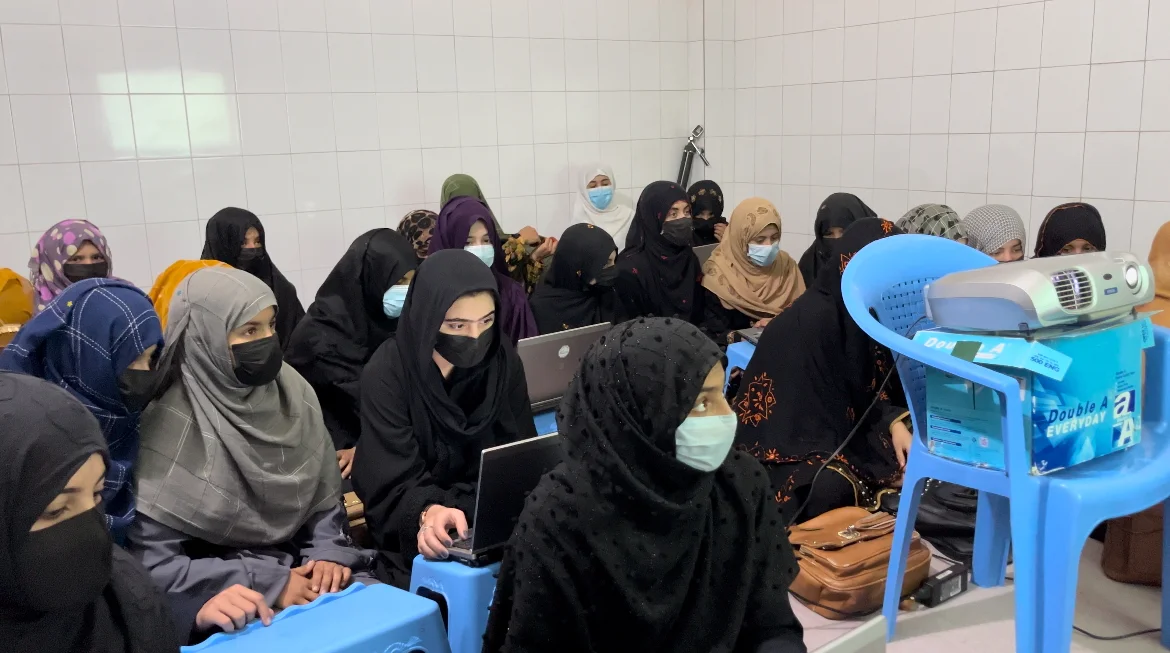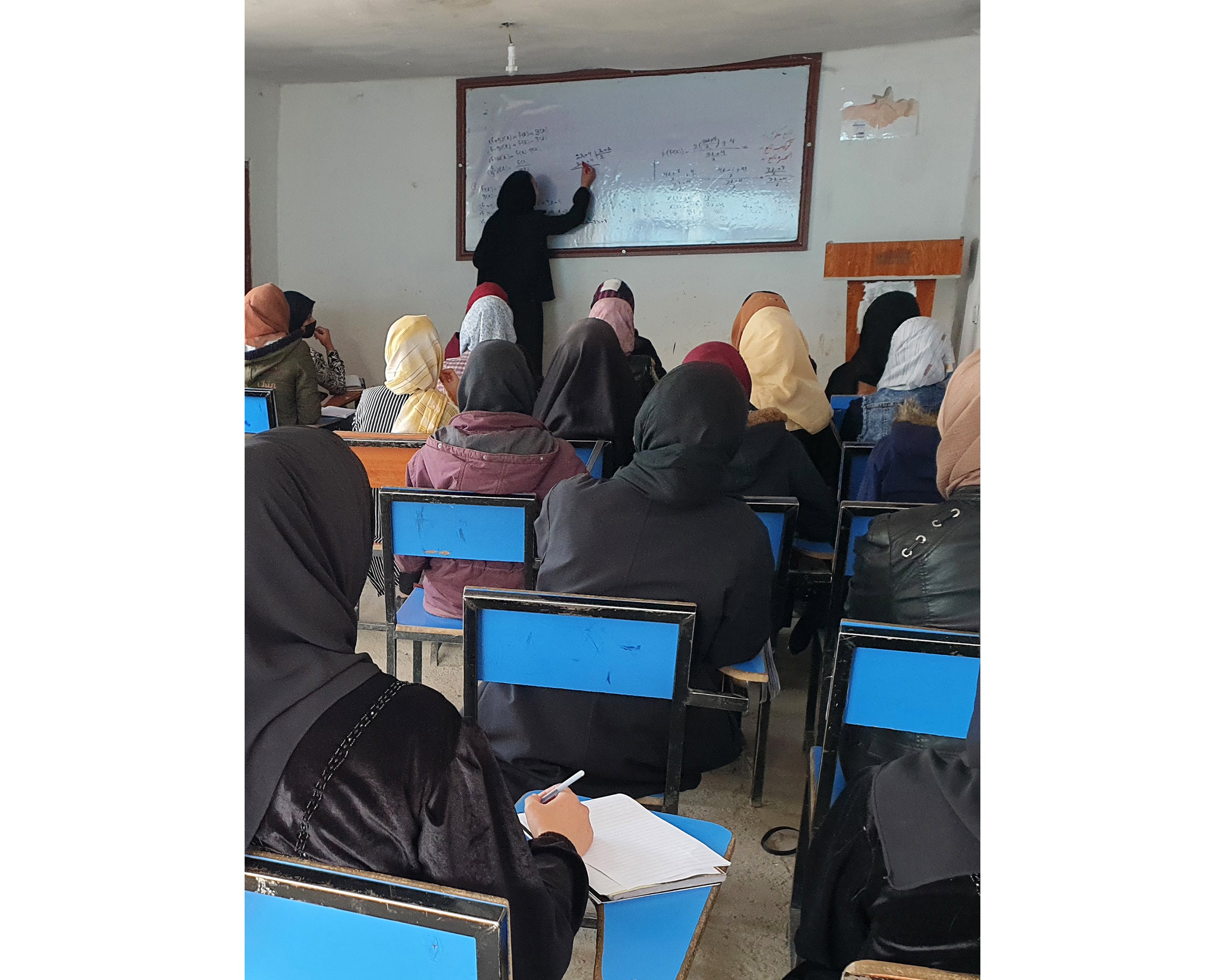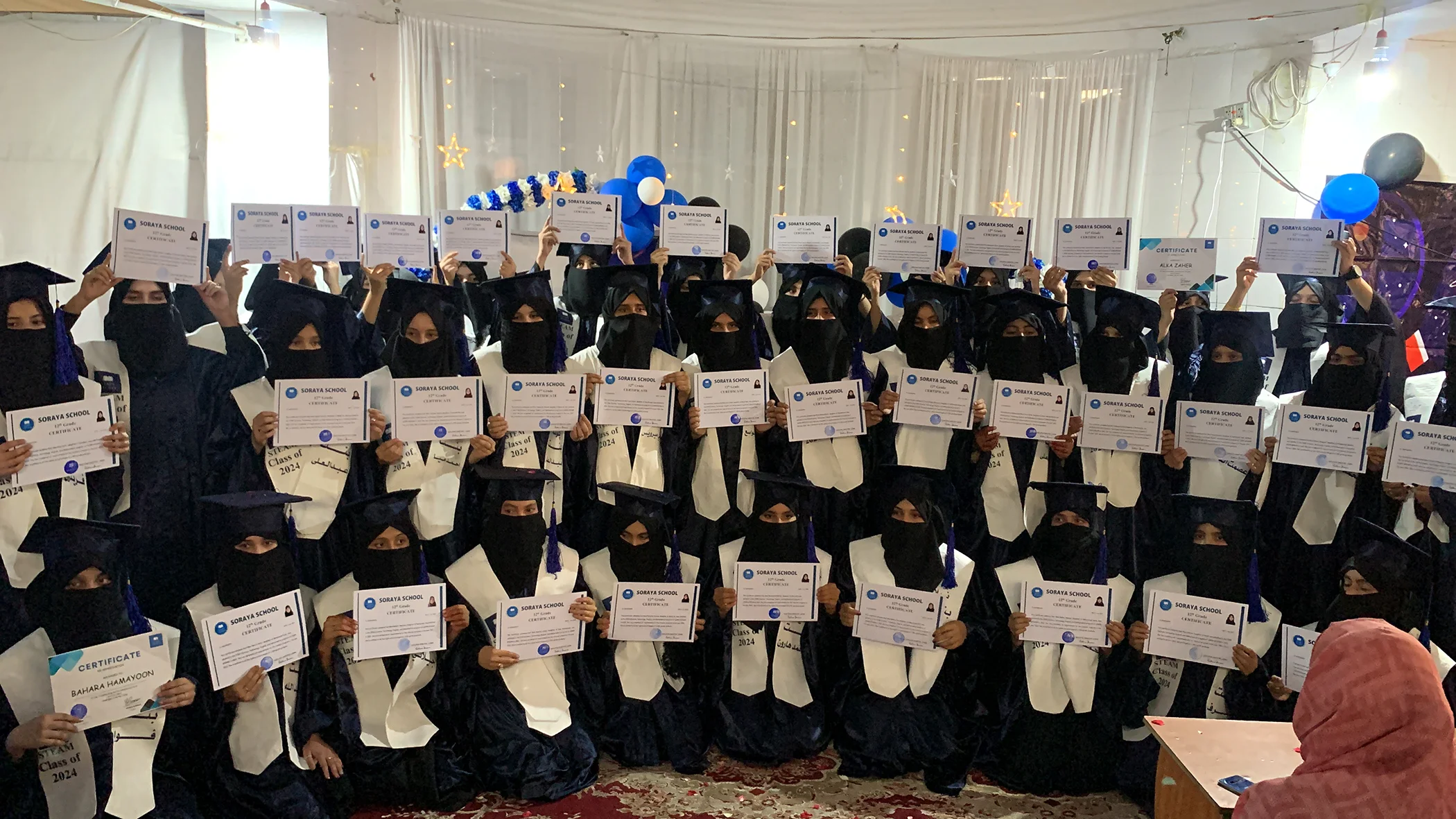Girls’ education and women’s empowerment have faced threats throughout Afghanistan’s turbulent history but with the Taliban’s return to power in 2021, Afghan girls and young women have been banned from continuing their education beyond the sixth grade.
Civic space in Afghanistan is closed with women and girl’s freedom of expression, movement, and speech being among the most heavily impacted. This has included a 2024 law requiring women to conceal their bodies, faces and voices in public.
In March 2025, UNICEF noted that 400,000 more girls were deprived of their right to education in the Taliban-run nation, bringing the total to 2.2 million.
In her own words, 17-year-old Roqia Mansour shares her aspirations as a young woman growing up in Afghanistan, and Learn Afghan provides insight into the realities of seeking an education in the restricted country.
I am Roqia Mansour
I was born and raised in Afghanistan, Ghazni province. Growing up as a girl here has been both challenging and inspiring. It has required me to be resilient and strong in the face of adversity. Despite the difficulties, I have always felt determined to pursue my education and dreams, even when faced with limitations and societal expectations. Growing up in Afghanistan as a girl means navigating restrictions, but it has also given me a chance to understand the importance of fighting for my rights and the rights of others.
What matters most to me is education, self-improvement, and the empowerment of girls and women.
I believe that education is the key to unlocking potential and creating opportunities. The ability to learn and grow is something I value deeply, and I want to help create a future where every girl has access to education and the ability to chase her dreams.
 Students look at the lesson on a projector as they work on their laptops during a computer class at Malalai School.
Students look at the lesson on a projector as they work on their laptops during a computer class at Malalai School.
I believe education is the most important tool for breaking the cycle of poverty.
For me, education is not just about gaining knowledge but about empowerment. It provides individuals with the skills and knowledge to create better opportunities for themselves and their communities.
One of my biggest concerns is the continued closure of schools for girls, especially under the current circumstances in Afghanistan. The challenges are many, including cultural restrictions, political instability, and a lack of resources. These barriers prevent girls from accessing the education they deserve and need. The fear of violence, societal pressures, and the belief that education is unnecessary for girls all contribute to the problem.
I want to be a lawyer.
I hope to use my knowledge and skills to advocate for justice and equality, particularly for women and girls. I believe that through law, I can help bring about positive change and ensure that everyone’s rights are protected.
My hope is for every woman and girl in Afghanistan to have the freedom to pursue her dreams and aspirations without fear.
I hope for a future where all girls can access education, live without violence or discrimination, and become leaders in their communities. I believe that when women and girls are empowered, they can change the world for the better, and this is my hope for Afghanistan’s future.
Mansour is a student at Learn Afghan, a non-profit schooling academy in Afghanistan founded by Young Activist Summit laureate and 2023 Global Citizen Prize winner Pashtana Durrani.
Here, they share some insights on the current educational environment in Afghanistan:
 A teacher leads a class at the Rabia Balkhi School as students take notes.
A teacher leads a class at the Rabia Balkhi School as students take notes.
Daily Routine
Since the Taliban's return to power in August 2021, access to education for girls in Afghanistan has been severely restricted. Girls are officially allowed to attend school only up to the sixth grade, with all secondary and higher education opportunities suspended. As a result, formal education is no longer part of daily life for millions of girls. In response, many families have sought alternative solutions, turning to informal or underground learning environments.
Despite the challenges, a significant number of girls continue their studies through discreet, community-based classes, and online programs — including those provided by Learn Afghan. A typical day for these students may begin with household responsibilities, followed by studying through secure digital platforms or small, private learning groups later in the day.
Daily Risks
In the current climate, the pursuit of education for girls in Afghanistan involves a range of quiet but persistent challenges. While traditional school attendance is no longer an option for many, learning continues in more private and informal ways. These efforts must be approached with great care, as even the act of studying can attract unwanted attention in some communities.
Safety concerns include the risk of social scrutiny, pressure from conservative family members, or interference by local authorities. Privacy is essential to protect both learners and those supporting them. In addition to social risks, practical barriers such as limited electricity, unstable internet access, and a shortage of learning materials often disrupt the continuity of education.
Sources of Motivation
What continues to inspire us is the incredible resilience and determination of Afghan girls. Many remain committed to their education despite all odds — driven by a belief in a better future and supported by families, mentors, and peer networks. Education, even when informal, is a source of purpose, identity, and hope.
 Thirty six students hold their transcripts after graduating from STEM classes and receiving their certificates from Soraya School.
Thirty six students hold their transcripts after graduating from STEM classes and receiving their certificates from Soraya School.
This article, as narrated to Gugulethu Mhlungu, has been slightly edited for clarity.
To find out more about Learn Afghan’s work visit www.learnafghan.org and support their work by contributing to their ongoing GoFundme campaign.
The 2024-2025 In My Own Series is part of Global Citizen’s grant-funded content.